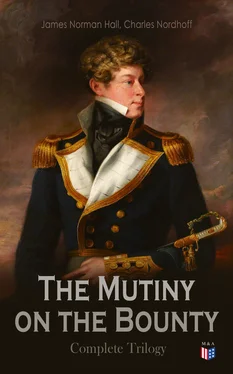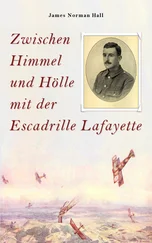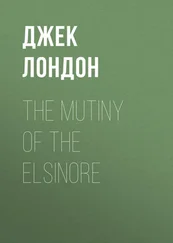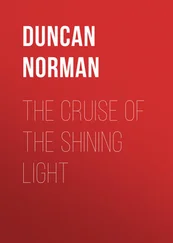He then called each of us in turn, beginning with Young, and asked whether he could count upon our coöperation, as members of the ship’s company, so long as we remained in the Bounty. Young decided, then and there, to throw in his lot with the mutineers.
“Chance has decided this matter for me, Mr. Christian,” he said. “I will not say that I would have helped you take the ship had I been awake at the time of the mutiny, but now that you have taken her, I am content that it should be so. I have no great desire to see England again. Wherever you may go you can count on me to go with you.”
Of the neutral party, he was alone in this decision. The rest of us promised to obey orders, to assist in every way in working the ship, and to refrain from all treachery so long as we should remain aboard of her. Our numbers being what they were, this was the only thing we could do. Christian neither asked, nor, I think, expected, that we should not desert if an opportunity presented itself.
“That is sufficient,” he said when he had heard us out. “I require from you no more than that. But you will understand that I must protect myself and these men from capture. In doing so I shall consider our interests before your own. You could not expect me to do otherwise.”
He then appointed his officers. Young was made master, Stewart the master’s mate, myself quartermaster, Morrison boatswain, and Alexander Smith boatswain’s mate. Churchill was master-at-arms, as before. Burkitt and Hillbrandt were appointed quartermaster’s mates. Millward and Byrne were to be the cooks. We were divided into three watches.
These matters being decided, we went about our duties. A part of the great cabin was fitted up as Christian’s quarters, and as soon as they were ready the arms chest was removed there. He used it for his bed, and kept the keys always on his own person. One of the mutineers stood on guard, day and night, at the doorway to the cabin. As for Christian himself, he messed alone, and rarely spoke to anyone except to give an order. The captain of a vessel lives, of necessity, a solitary existence, but never could there have been one more lonely than Fletcher Christian. Despite the bitterness I felt toward him at this time, my heart softened as I watched him pacing the quarter-deck hour after hour, by day and by night. All the gaiety had gone out of him; there was never the hint of a smile on his face—only an expression of sombre melancholy.
Stewart, Young, and I messed together, as usual, but our meals were not the jolly affairs they had so often been in the past. It was impossible to become accustomed to the emptiness and silence of the ship. We avoided speaking of those who had gone in the launch, as one avoids speaking of the recently dead, but we were reminded of them at every turn; and the thought of their probable fate, and our own, put a damp upon our spirits hard to overcome. But this applied to Stewart and me rather than to Young. He seemed to have few regrets for the turn our fortunes had taken; indeed, he looked forward with pleasure, rather than otherwise, to the prospect of spending the remainder of his life on some island in the South Sea.
“We may as well make the best of it, lads,” he said one evening when we were discussing the future. “It’s far from a bad best, if you look at the matter sensibly. I’ve always wanted a life of ease. Ever since reading Captain Wallis’s and Captain Cook’s accounts of their discoveries in the Pacific, I’ve dreamed of nothing but tropical islands. When the chance came to ship with the Bounty I was the happiest man in England. I’m willing to confess now that, had it been possible, I would have deserted the ship at Tahiti.”
“We shall never see Tahiti again, that is certain,” said Stewart, gloomily. “It will be the last place Mr. Christian will consider as a refuge. He knows only too well that a ship of war will turn up there, sooner or later, in search of us.”
“What does it matter?” asked Young. “There are scores, hundreds of other islands where we can live as happily. I advise the pair of you to put all thoughts of home out of your minds. The chances of your ever seeing England again are very remote. Make the most of what life offers you here.”
Remote indeed they seemed then. After parting with the launch we had followed the course the ship was then on, west-northwest, until well into the afternoon; then we bore off to the eastward, since which time our general course had been east by south. We were now in unknown seas, in so far as I knew, off the track of any ship that had explored the Pacific. It was clear that Christian was in search of undiscovered islands, for we hove-to at night lest we should pass any in the darkness. Those days and nights were as peaceful as any that I remember. The absence of Bligh was a godsend to all of us, mutineers and non-mutineers alike. There was no more of the continual feeling of tension, of uncertainty as to what would happen, whenever the captain appeared upon deck. Christian maintained the strictest discipline, but no one had cause to complain of his justice. He was a born leader of men, and knew how to rule them without the perpetual floggings and abuse which Bligh considered so essential. After the turbulent events of the mutiny the men seemed glad of the tranquillity which had settled over the ship. The breeze blew steadily from the northeast, and the Bounty nosed her way quietly along as though she had mastered the task of sailing herself and required no further help from us. The moon waxed and was on the wane when, one morning shortly after sunrise, land was descried bearing west by north.
Late in the afternoon we approached to within a mile of the reef which seemed to enclose the island, forming a shallow lagoon where we saw many canoes plying back and forth. The island appeared to be about eight miles long. The interior was mountainous like that of Tahiti, although the land was not so high, and the lowlands surrounding it were covered with the same luxuriance of vegetation. As in most of the islands in that part of the Pacific, deep water came directly up to the reef, and we coasted along, close inshore. Several canoes, with ten or a dozen men in each, put off from the beach and soon came up with us. The Indians resembled the Tahitians in colour, stature, and the manner of their dress, and it was evident that they had never seen a European vessel before. We tried to persuade them to come alongside, and at last one of them paddled abreast of us at a distance of about thirty yards.
The men were strongly made, with handsome features and well-formed bodies. At Christian’s order I spoke to them in the Tahitian language, asking them the name of their land. This they understood, and replied that it was Rarotonga. They seemed utterly astonished at my words. One of them replied at some length, but his speech was largely unintelligible. For all our friendly gestures we could not persuade them to approach more closely. Some trinkets Christian wished to give them were wrapped in a cloth and lowered over the side on a piece of planking. When we had let this drift well astern, they approached and took the parcel and the plank as well, which they put into their canoe without unwrapping the cloth to see what it contained.
Having failed in our efforts to persuade any of them to come on board, Christian gave orders to make sail, much to the regret of all of us, for this island was scarcely less beautiful than Tahiti, and, judging by the actions of the men in the canoes, the people would not have opposed our landing. It has always remained a puzzle to me why Christian did not choose this island as his hiding-place; for Rarotonga lies nearly seven hundred miles southwest of Tahiti, and at this time he had no reason to believe that its existence was known to any Europeans save ourselves. His reason may have been that, in coasting the entire length of one side of the island, no possible anchorage was to be seen; or perhaps, at this time, he was so disturbed in mind as to have no definite plans for the future.
Читать дальше











